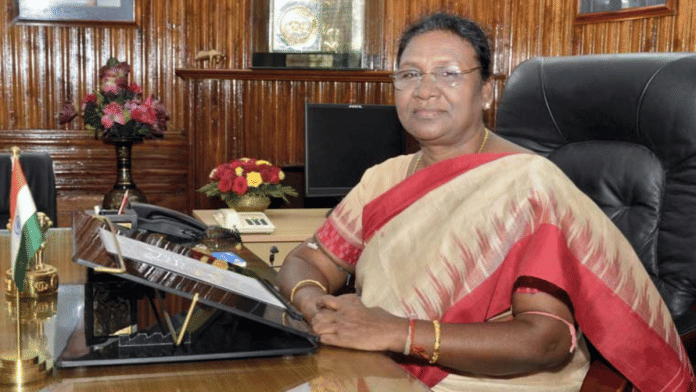Twenty-five years ago, Droupadi Murmu was elected as a city councillor in the small town of Rairangpur in Odisha. She won as an independent candidate from a ward reserved for women. In July this year, she took oath as the President of India, the highest political office in our country.
In the same year, 1997, 33-year-old Eknath Shinde was elected as a city councillor in Thane, Maharashtra. He served two consecutive terms before contesting for assembly election in the state. On 30 June 2022, Eknath Shinde was sworn in as the chief minister of Maharashtra. Some of the tallest leaders of the freedom movement, including Jawaharlal Nehru, Subhas Chandra Bose, and Sardar Vallabhbhai Patel, were all elected to city councils during the 1920s. In a mature democracy, we expect the political leadership to emerge from the grassroots.
Ignoring the local leadership
Councillors are the bridge between citizens and the government at the ‘first mile’ and are closest to the citizen, quite literally. India’s 87,215 city councillors across its 4,700 plus towns and cities are extremely important but often ignored stakeholders of urban governance. There is lamentable infrastructure, inadequate sanitation and waste management, and we devise solutions without considering the role of elected councillors to run cities.
In a recent survey conducted by Janaagraha, a not-for-profit organisation based out of Bengaluru, less than 17 per cent of respondents could recall the name of the mayor, while 97 per cent could name the Prime Minister and 83 per cent could name the chief minister. Lack of basic awareness about local government is, unfortunately, a nationwide phenomenon. Citizens often reach out to MLAs and MPs instead of councillors. Poor turnout in civic polls is yet another sign that councillors are not valued.
Also read: Not a rubber stamp—In Droupadi Murmu’s backyard, the hunger for development has just shot up
Young, gender-balanced, but behind
Unlike our Parliament and state legislatures, women are well-represented in our city councils. Thanks to progressive legislation — the Constitution mandates 33 per cent of seats to be reserved for women, 18 states have even increased this to 50 per cent — nearly 46 per cent (40,119 out of 87,215) of councillors in India are women.
According to Janaagraha’s analysis, on average, 44 per cent of India’s cities are led by women mayors. A study by the United Nations Economic and Social Commission for Asia and Pacific on women councillors across 13 countries observes that they practice transformative leadership — “responsiveness and accountability towards the community”.
Youth are also better represented in our city councils. In Bhubaneswar, 25 per cent of the elected councillors are under 35 years of age. In Ballari (Karnataka), 21 per cent are under 35 years too. Our city councils also have several first-timers — 33 of 39 in Ballari and 46 of 67 in Bhubaneshwar have never been elected before. They are eager to learn and make their mark, but the absence of orientation programmes deprives them of basic knowledge and information. Learning does happen but entirely depends on informal networks.
“For most first-time councillors, particularly women, learning itself takes four to five years. By the time they realise how the work gets done, the term is almost over. Induction programmes are critical for us,” said Payal Sakariya, 24-year-old councillor of Surat.
“Someone who becomes a councillor may or may not have the understanding or resources to learn about their job role. “We have a municipal corporation guidebook from 2003. However, it is in chaste Hindi and I’m not sure if anyone is able to make sense of it. Training is a must. It will lead to better cities,” said Rohan Chandel, 26-year-old councillor from Dehradun.
There’s still a big lack
Payal and Rohan represent the changing face of city councillors. They are internet savvy and aware of what’s happening around them. Having just won an election, they are also aware of the issues their constituencies face. While they feel the responsibility, they’re largely unsure about how to get started. Despite an opportunity to speak up, they cannot move ahead, lacking access to information to make compelling arguments. With no orientation about how their city runs and who does what, they struggle to get things done.
Our councillors know how to navigate the political system and win but are ill-equipped to govern once elected. Janaagraha’s recent study titled ‘City Leaders’ clearly establishes the need for a systematic leadership programme for councillors, particularly women. All the councillors interviewed felt that formal induction training is important to get started, and 89 per cent of them wanted periodic training to learn about emerging trends. First-time councillors, especially those with no prior political background, value training even more.
Our politics and media revolve around 543 MPs and 4,123 MLAs but barely recognise the city councillors. Global challenges cannot be addressed without local leadership. State governments must establish formal institutions and programmes to equip councillors, first-timers as well as seasoned ones with knowledge, information, and tools. Councillors must be seen as leaders of our cities who need systematic capacity building so that President Murmu and CM Shinde are not rare exceptions.
Srinivas Alavilli is head of civic participation and V. R. Vachana is advocacy manager at
Janaagraha Centre for Citizenship and Democracy, Bengaluru. They are also authors of the City Leaders Report. Views are personal.
(Edited by Humra Laeeq)






